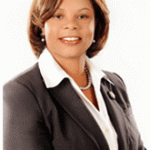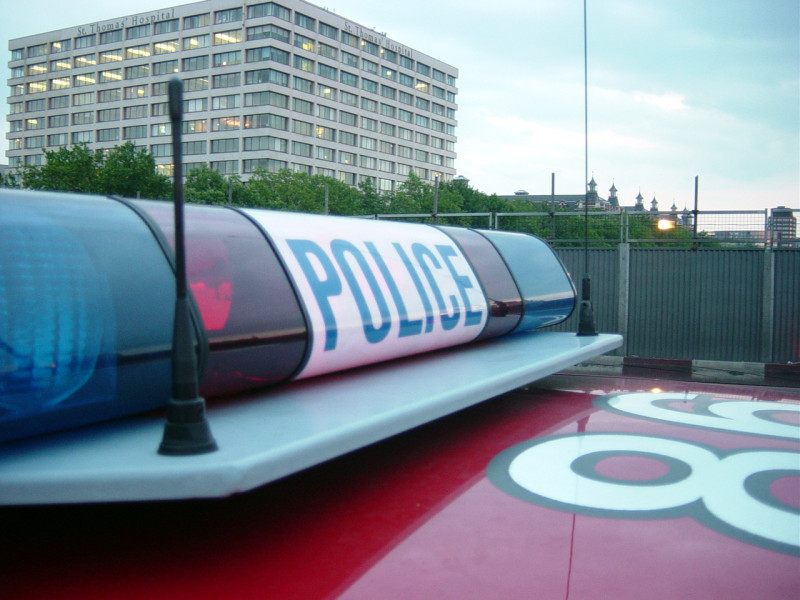by Tim Curtis and Scott Moyers
JEFFERSON CITY, Mo. – When Attorney General Chris Koster released the annual traffic stop disparity report Wednesday, he included for the first time a call for the legislature to fix a racial bias.
The report showed that in 2015, a black Missourians was 1.69 times more likely to be pulled over than a white Missourian statewide. The rate at which African Americans were stopped was 1.61, a slight decrease from 2014’s 1.66.
Overall though, the report found that the likelihood has increased from 1.2 when data was first collected in 2000.

“It is time for the General Assembly—which ordered the collection of vehicle stop data 16 years ago—to decide how to make the annual vehicle stops report more meaningful,” Koster wrote in his analysis of the report. “The General Assembly should solicit suggestions from the relevant stakeholders—including law enforcement, local governments, and representatives from the communities they serve—regarding measures to improve the report.
“If there is to be any meaningful change in response to the growing disparity indices identified over the last decade and a half, the Legislature must act.”
Following the report, several community organizations decried racial profiling by police and urged Missouri legislators to pass tougher laws that would encourage law enforcement to curb such biased traffic stops or face financial penalties to their departments.
Empower Missouri, a progressive advocacy group, hosted a news conference in Jefferson City while others, such as the ACLU, the Coalition Against Police Crimes and others gathered in St. Louis.
Empower Missouri has studied the Vehicle Stops Report since 2009, focusing especially on what takes place after a vehicle is stopped. For example, while the overall numbers are down slightly, 10 departments across the state that made a significant number of consent searches (10 or more) had a search rate for minorities that was three times higher for white drivers.
“Officers should be trained to deescalate tense situations,” said Don Love, chairman of Empower Missouri’s Human Rights Task Force. “Communities with high disparities related to resisting arrest and other post-stop interactions should seek dialogue with departmental leadership and request an explanation for the disparities.”

Those community organizers at the news conference also suggested that the legislature take another look at the Fair and Impartial Policing Act, which didn’t clear either chamber this year. Filed by Rep. Shamed Dogan (R-Ballwin) and Sen. Jamilah Nasheed (D-St. Louis), leaders at both events Thursday urged lawmakers to pass the bill next year in an effort to curb racial profiling.
“Communities shouldn’t have to worry about not being treated equally,” Nasheed said. “The Fair and Impartial Policing Act provides the information needed to recognize those departments that police unfairly stop and those that protect and serve all in the community.”
But even some of those supportive of racial profiling reform were critical of Koster, questioning his motives in calling for action now, while he’s running for governor.
“I think it might just be political pandering by him,” Dogan said. “After seven years of not doing anything about this report that comes out every year, all of a sudden, in an election year, after the legislature is adjourned, he’s going to put out something that says we need legislative action. I’m just very skeptical of his sudden advocacy of this issue.”
He says he never received support from Koster, or Gov. Jay Nixon, for his HB 2273.
The Fair and Impartial Policing Act would bring departments that have elevated disparity numbers under scrutiny for a couple of years and provide them resources to help bring those numbers down. But if the numbers continue to be high in year three, the department or officer under scrutiny would start to see penalties up to and including a loss of certification.
One provision of the act would reduce funding for law enforcement departments that refused to make efforts to cut down on racial profiling. The bill, as proposed last year, would also require departments to track home residences of drivers as well as well the stopped occurred.
“Missouri cannot tolerate another death resulted from an unwanted stop,” said Rod Chapel Jr., president of Missouri’s NAACP.
Dogan hopes that the issue will get attention from the gubernatorial candidates and attorney general candidates during the election to help move the discussion forward.
“I think they should all be asked the basic question, ‘do you agree with this report that racial profiling is a serious problem in Missouri?’ and then ‘what would you as governor or as attorney general do to try to remedy these disparities?’”
He’s also going to continue talking to his colleagues to point out how necessary the law is, a process he said helped get the bill a hearing last session.

“From the Ferguson issue and with Mizzou and some of these other issues that we’ve had blow up in the national spotlight on our state, the last thing we need is one more reason for minority people to feel like Missouri isn’t a welcoming place for them,” he said he tells his fellow representatives. “Whether it’s St. Louis or Kansas City or Springfield, they should be seen as an attractive destination for everybody, regardless of their race. I feel like right now, we are not that target. If you’re African American and you see these stories about Missouri all the time, it makes it more likely that you’re going to move to Atlanta or New York or Indianapolis or one of these other places that isn’t in the news all the time because of these issues. We need to do it from a competitiveness standpoint.”
Critics and allies of Koster agreed though that the report shed light on the troubling practice of racial profiling in the state.
“I thank the Attorney General for his work and analysis of this issue,” Sen. Maria Chapelle-Nadal, D-University City, said in a statement. “He is right, we need to increase the measures of how and what we report and also give the law teeth. Police departments that routinely exhibit racist practices must be addressed, and there must be penalties for departments that intentionally stop people because of their skin color.”
Dogan said he was particularly troubled by some of the report’s findings about searches during traffic stops.
“Not only are blacks stopped more often and arrested more often, but they are given consent searches more often, which is entirely within the discretion of the officer,” he said. “And even though they are searched more often, they’re actually found less likely to have contraband, whether that’s illegal drugs or whether that’s a weapon. Black drivers are found to be less likely to actually have contraband on them.”
According to the data, blacks are 1.63 times more likely to be searched during a stop than whites. But, of those searched, whites are 1.2 times more likely to have contraband.
There were also arrest disparities, according to the report.
“The “arrest rate” is the fourth summary indicator … that may be useful for assessing racial profiling,” the report said. “Just under 5 percent of all vehicle stops resulted in an arrest (70,664/1,565,728). The probability of arrest varies across racial and ethnic groups.
Approximately 6.9 percent of the stops of African- Americans and 7.2 percent of the stops of Hispanics resulted in arrest, compared with about 3.9 percent of the stops of whites.”
“Government is not supposed to discriminate against its citizens on the basis of race, and that’s exactly what racial profiling is. It’s wrong for that reason and it’s also bad policing because it’s a waste of resources,” he said. “We have a serious crime problem in our inner cities that needs to be addressed. If you’re stopping people because of broken taillights, then you’re not getting at those more serious problems.”
Dogan also said the practice needs to stop, not just because it’s wrong but because it’s preventing good work from being done to lower crime in the state’s inner cities.
“Government is not supposed to discriminate against its citizens on the basis of race, and that’s exactly what racial profiling is. It’s wrong for that reason and it’s also bad policing because it’s a waste of resources,” he said. “We have a serious crime problem in our inner cities that needs to be addressed. If you’re stopping people because of broken taillights, then you’re not getting at those more serious problems.”
The report calculated the disparity numbers by comparing the demographic profiles of those pulled over to the driving-eligible population, that is the population over 16 years old. It does point out that because the data is based on residence, some areas may seem to have higher rates but it doesn’t account for people traveling jurisdictions on their way to work or home.
The data can be searched by local jurisdiction here. Of the 695 law enforcement agencies in the state, 623 agencies reported data for 2015. Another 56 agencies turned in data that suggest they made no traffic stops during the year (the report says many of these jurisdictions contract their stops out to other agencies). Fifteen agencies did not provide data by March 1, 2016.
The information provided accounts for 1,565,728 vehicle stops, resulting in 94,126 searches and 70,664 arrests.
The data was provided by professors at Arizona State, the University of Missouri – St. Louis and the University of South Carolina.












